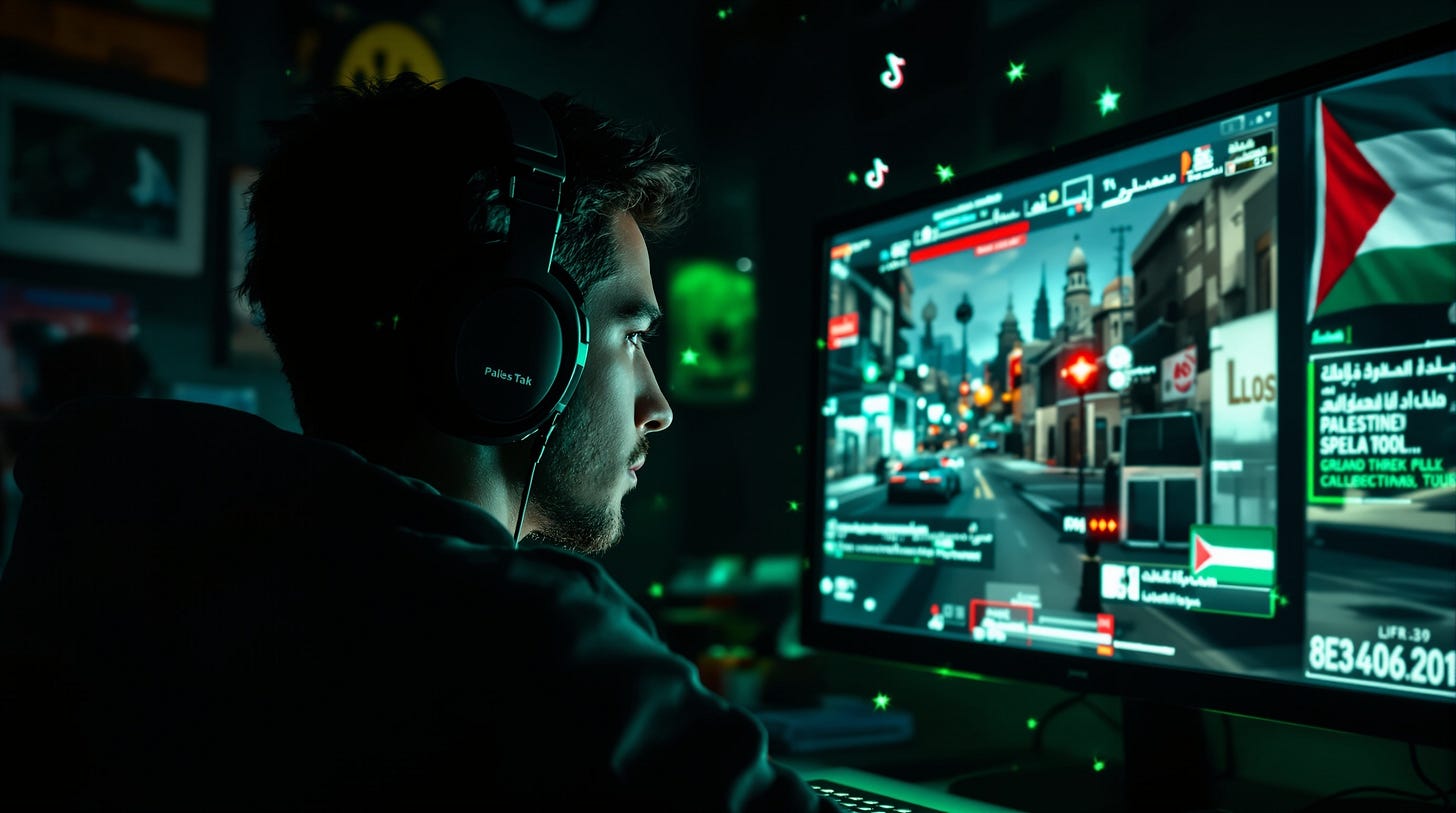New Report Reveals Modded Version of GTA5 May be Vehicle for Inciting Terrorism
The International Institute for Counter-Terrorism Reveals How "Magic City" transforms entertainment into pro-terror indoctrination through gaming, Discord servers, and viral TikTok videos
A seemingly innocuous video game modification has evolved into a sophisticated digital ecosystem for normalizing violence and radicalizing young Palestinians, according to a new report by the International Institute for Counter-Terrorism (ICT). The Magic City server—a modified version of Grand Theft Auto V—has attracted over 100,000 registered users who engage in simulated attacks against Israeli forces and civilians.
The Magic City server operates on FiveM, a modding platform that allows users to create customized multiplayer environments within GTA5. What distinguishes this server from typical gaming communities is its deliberate reconstruction of the Israeli-Palestinian conflict landscape.
Players navigate virtual representations of West Bank geography complete with IDF military vehicles, checkpoints, separation barriers, and Israeli police forces. With more than 700 daily active players and over 50,000 Discord members, Magic City functions as a vehicle where terrorism is gamified and glorified, according to the report.
The Three-Pronged Ecosystem
The ICT report reveals that radicalization occurs through a three-pronged ecosystem: the game itself, adjacent Discord communities, and viral TikTok content centered on it. Within the game, players assume the role of Palestinian characters confronting Israeli military presence through simulated violence.
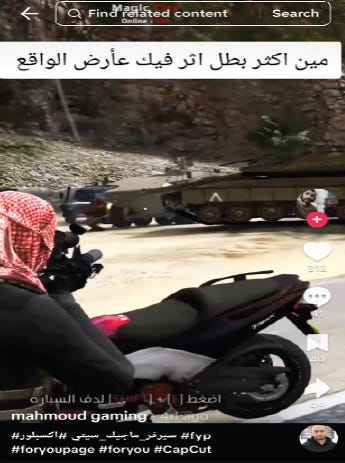
The environment doesn’t rely on scripted narratives; instead, symbols, geography, and player choices construct a persistent story of resistance and confrontation. Players can pursue various paths including organized crime, casual exploration, or what the report describes as “simulated terrorism“ targeting IDF soldiers, police, and civilians.
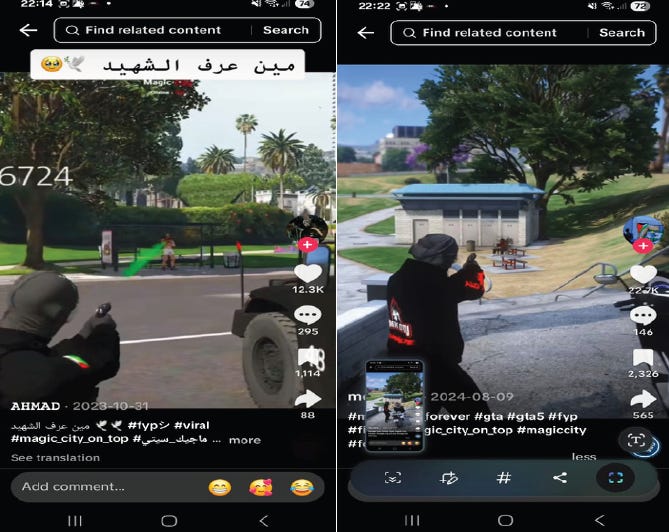
Discord: The Ideological Backbone
The radicalization process extends well beyond gameplay. Magic City’s Discord server — which the report describes as a “networked radicalization environment,” functions as the organizational and ideological backbone, hosting over 50,000 members across multiple channels. Here, moderators coordinate in-game events, including documented competitions rewarding players for civilian collisions with in-game prizes.

TikTok: Viral Amplification
The primary platform where videos of the game are disseminated is TikTok. These videos fall into distinct categories: attacks on IDF forces featuring players shooting at military convoys; assaults on civilians at bus stops and convenience stores; content glorifying real-world terrorists; and checkpoint simulation scenes.
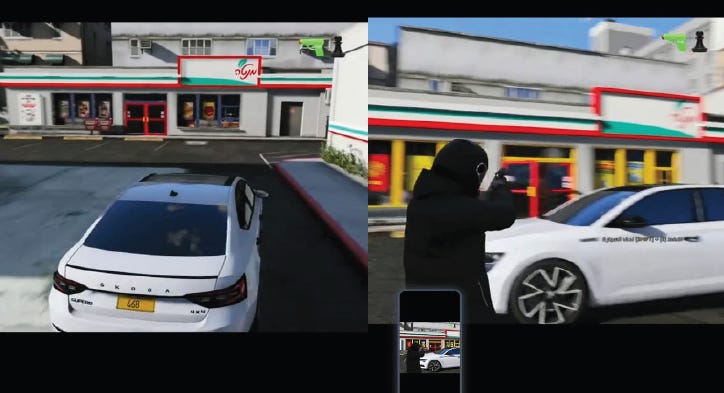
One video, for example, references Ibrahim Nabulsi, a commander of the al-Aqsa Martyrs’ Brigade terrorist group, depicting him in heroic light.
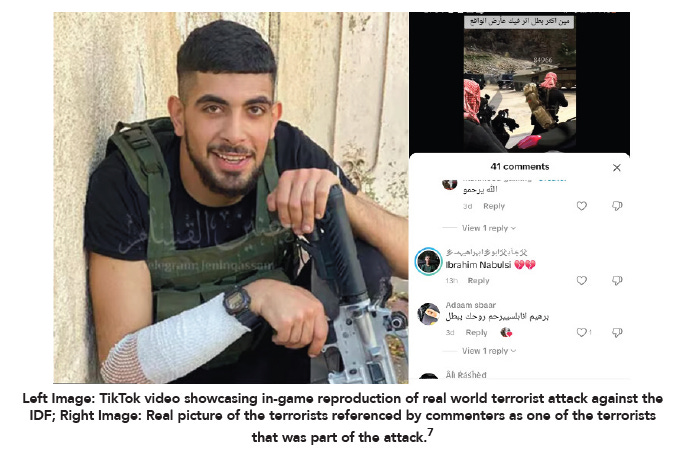
The videos employ humor, emojis, and sarcastic captions to reframe violence as casual entertainment. One clip shows a gamer at home playing Magic City with text reading “We’re living the most fun vibes in Magic City—aren’t you?”
Sophisticated Commercial Infrastructure
Magic City’s operations are funded through an online store accepting credit cards, Google Pay, and PayPal for in-game upgrades and products. This commercial infrastructure demonstrates the server’s organizational sophistication and long-term sustainability.
The ICT report emphasizes that Magic City represents a broader trend of extremist groups exploiting gaming platforms. Unlike earlier attempts by organizations like Hezbollah to create dedicated propaganda games, modern extremist actors increasingly use modding tools to insert radical narratives into popular existing games. This approach provides access to established user bases and reduces development barriers.
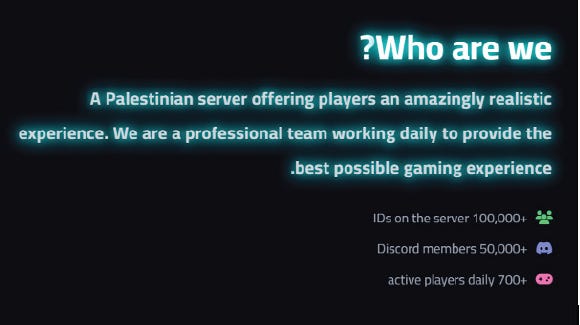
Long-Term Impact and Policy Implications
The report concludes that Magic City’s impact extends beyond immediate gameplay, potentially embedding narratives of armed struggle into the digital culture of Palestinian youth. By presenting terrorism as entertainment, the platform may shape political identity and attitudes toward conflict with effects that endure well beyond virtual space—potentially inciting violence.
According to the ICT, the game underscores the urgent need for coordinated interventions at the intersection of gaming, social media, and extremism, requiring collaboration between policymakers, platforms, and civil society organizations.



